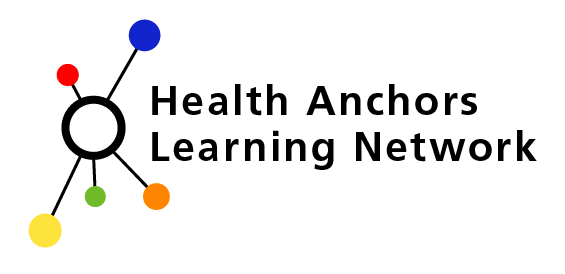Anchoring Support for Neurodivergent Young Girls
Establishing anchor partnerships to tackle inequalities and support neurodivergent young people to thrive
Guest blog from Innovation Unit
Innovation Unit is a not-for-profit social enterprise working with partners across health, children’s social care and education to spread and scale innovations that deliver long-term impact for people, address persistent inequalities, and transform the systems that surround them. One issue we have heard many leaders, practitioners and residents up and down the country share concern about is the disproportionate social, health, cultural, emotional, and educational hurdles neurodivergent young girls face. We’ve heard that radical action, which cuts across sectors and silos, is needed - and we think that health anchors have a central role to play.
We have launched an Invitation to Transform these systems of care, inviting people to join us in a conversation series focused on collaboration, (un)learning and innovation. We are calling for health anchor colleagues to take part, so that together we can support neurodivergent girls to find much better care, access support in their communities, and be able to contribute to shaping the world around them.
Call to Action: addressing inequalities
Far too many neurodivergent young girls are missed, misunderstood or wait too long for the support a diagnosis is thought to unlock – often to be met with limited support or no support at all. Across sectors and organisations, anchor approaches often centre on a core commitment to tackling inequalities and addressing the social determinants of health, meaning that this challenge sits squarely within anchors’ realm of influence and foci.
Embracing Collaborative Partnerships
Currently the UK’s mental health, social care and education systems are unable to respond effectively to the multifaceted challenges neurodivergent young girls face, which include not having their support needs recognised and often arriving at adulthood with significant mental health challenges. The intersection of neurodivergence with gender means that girls are less likely to receive a diagnosis or be met with the right support, and this can significantly affect a young person’s life outcomes. A lack of knowledge, understanding and appropriate support for neurodivergent girls is a challenge that spans across the relationships and places that contribute to their mental health and wellbeing, and cannot be solved by a single service or organisation.
No anchor or even single sector can
confront this work alone.
Working in partnerships is a cornerstone of effective anchor work - as identified by the Health Anchors Learning Network - and the complexities of the issues faced by neurodivergent young girls demand a place-based multidisciplinary approach. By collaborating with other stakeholders such as schools, libraries, voluntary sector organisations, businesses, and other community anchors like football clubs- to better understand and support neurodivergent young girls- we can leverage the unique strengths of each entity to create more holistic systems of care and support (for more information on partnership as a cornerstone of anchor work, take a look at this learning product).
To deliver real change in the lives of these girls, we need an environment that fosters collaboration, innovation, and a culture of (un)learning.
Innovation Unit’s Invitation to Transform
Over summer, we are bringing together people from diverse backgrounds, experiences, and sectors to collectively share insight and imagination about transforming systems of care for neurodivergent young girls, and health anchors have a pivotal role to play. Our "Invitation to Transform" is an open call to all anchor colleagues, practitioners, community partners, leaders, people with live experience and funders, beginning with joining a ‘Meetings of Minds’ in summer and subsequent conversations on how to resource new work.
This is a chance to be part of a movement that transcends silos and moves beyond the traditional boundaries of care, providing neurodivergent young girls with the anchoring support that they need in the place they live. Join us in co-designing a world where neurodivergent young girls can thrive and participate fully with their friends, family and communities.
